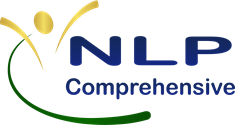Interview by Tom Dotz and Al Wadleigh
Tom Dotz and I met with Petros Geroulanos in Winter Park, at the NLP Comprehensive Summer Residential Training last summer. We discussed some of the key areas in which Petros uses NLP in his business and the effect it has had.
AL: Petros, tell me a little about yourself.
Petros: My name is Petros Geroulanos. I live in London, I’m of Greek origin, and I run a training company which operates in Western Europe and Southeast Asia. We train people in the financial sector and in an area called Mind Management, which is anything that’s happening in the brain. Mainly, learning strategies.
AL: Would you elaborate a little more about that?
Petros: Okay. Well first of all, in the financial sector, we’re training the traders or junior traders how to integrate financial instruments in financial markets, how to profit from different movements and different segments and arbitrage markets against each other. The mind segment is about learning: we work that way with children and adults up to very advanced years, and it’s mainly about memorizing and speed reading and what’s actually going on in the mind. We’ve identified that there are two sides of the brain and that it’s worth getting them two to work together. NLP is one tool of taking this a step further, in fact, it’s almost a philosophy of going deeper.
Tom: How is NLP a part of these systems you’ve created?
Petros: It allows a mental image, voice, internal voices and emotions that are created by external impulses to be processed on a more profound level. We use them more as a game to help access learning so we speed up the reading and memorizing processes. It’s more of a fun type thing to do.
It allows us to access more profound emotions and use the images that come up or the voices that come up in a process that allows individuals to change in the sense of opening up and having more tools available to them. The core part of where we use NLP is more on the trainer’s side: how do the trainers apply the rapport-building skills, the anchoring within the training process. That is also applicable in the financial training that we do: creating visual line curves, using certain of the models like Milton language to communicate the message more effectively.
Al: How about yourself personally? How have you used NLP in your life? How has it affected or changed you?
Petros: It’s made me much more tender in my heart. It has made me much softer. I am business oriented, I consider myself in the business of building businesses and getting people to produce results. There I’m extremely demanding. Managing task forces is tough–you’ve got to get people working for you at twelve o’clock at night, get them out of bed– you’ve got emergencies and we really push them to the extreme. This is making me a bit softer in dealing with that and probably causing better results than before.
Tom: So you mean even though you’re being softer, gentler with your people, you’re still getting the kind of productivity you want? I would imagine it also would have a positive effect on your ability to retain people for the long term.
Petros: Yes, in fact, having the presuppositions of NLP work for you as almost a philosophy and a way of being means that we can’t get rid of people just be-cause they come around. They just come around and they are happy to support the organization in any shape or form.
Tom: That’s the kind of problem I think most every businessperson would love to have.
Al: What kind of benefits would they expect to achieve from making a very serious investment in learning the technology that doesn’t seem to have a very defined benefit other than the ones we’ve discussed so far? How would you communicate that?
Petros: NLP is a process of change and by changing, of actually staying who you are. So you are still the same person and you go through change. So you don’t actually become a different person through the change. You just behave differently and that different behavior is very powerful. It gives you the choice of your behavior.
It gives you choice also to deal with your own emotions when you are in specific situations and how to deal with them.
Tom: So you have more freedom in your behavior and in your response to situations?
Petros: Definitely. Again, the emphasis is on choice. Then it’s also flexibility, which comes with being able to choose different ways of behavior without changing the intent. So that you have one intent and you have more behaviors that will follow up on that intent.
Tom: So it gives you more options to get to your outcome, to produce the results that you want.
Petros: That makes you much more stable, much more robust, and provides you with a greater possibility to lead better.
